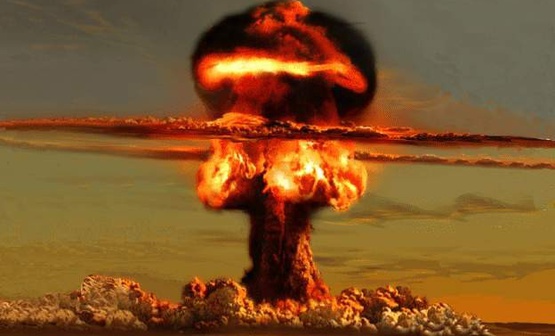Many in the West fear that providing military assistance to Ukraine would open the way for disasters ranging from the potential loss of an American helicopter as happened in Somalia to a possible nuclear exchange between Russia and the West as Vladimir Putin has threatened.
But such arguments, as emotionally compelling as they may be, look at only one side of the ledger and fail to address the other and more important side: what will happen if Putin’s aggression in Ukraine succeeds while the West stands by and does little or nothing – and not just on the former Soviet space but around the world?
On Novy region 2 today, Kseniya Kirillova says that while the concerns about the risks involved are understandable, they are misplaced because they ignore the fact that the consequences of not assisting Ukraine will be far worse than any of those from doing so.
The biggest fear some in the West and especially in Europe have is that providing assistance would provoke Putin, lead to an escalation of the conflict, and possibly open the way to the use of nuclear weapons. But “the chief paradox” of the situation is in fact that not providing Ukraine with military help may make that more likely, Kirillova says.
She notes that Ukraine gave up the nuclear weapons on its territory in exchange for a guarantee of security as offered in the December 1994 Budapest Memorandum signed not only by Ukraine but also by Russia, the United Kingdom and the United States.
That agreement in turn is part of the more general security system in Europe, a system “build on guarantees.” But “if such guarantees are violated in a barbarous fashion, and Europe and the US do nothing for their defense, then we will get the destruction of the entire existing world order” and enter into a Hobbesian world in which each will look to its own defense.
In that event, the threat of the use of nuclear weapons will come not just from Moscow. Other governments, “uncertain that they can defend themselves” or that anyone else will defend them, will be less willing to give up nuclear weapons if they have them and more inclined to try to develop them if they don’t.
A world in which a large number of countries do so will not be a stable one. Instead, it will be one in which at some point either through miscalculation or otherwise, someone will use them and someone else will have to respond.
Those who argue against providing military assistance to Ukraine “frequently forget,” Kirillova says, that they are in fact “acknowledging ‘the right of the strong’ to violate the territorial integrity of any weaker states by those which have important economic or political significance for the West or simply are more effective in using blackmail.”
But “it is not too late to correct the situation even now.” And as the risks of doing nothing are so much greater than those of taking action, Kirillova concludes, “let us hope that despite all the warnings of the German side, the United States will provide the victim of aggression with the help it is asking for” lest the aggressor and potential victims decide that aggression works.
And that means, she continues, that “the potential victims of aggression will begin to search for their own means to blackmail their opponents – if they do not see any other means for the defense of their interests” in a world in which guarantees have no meaning. Unfortunately, in today’s anything but stable world, there are a large number of countries likely to do so.
Iran is the most obvious, but it is hardly alone. Among others Kirillova lists are the Kurds, Serbia and Kosovo, Ukraine itself, Belarus, and Central Asian countries fearful of the Islamist threat; but that list would grow if others ceased to believe that they were protected or alternatively restrained by Western guarantees.
She notes that Belarusian leader Alyaksandr Lukashenka has already said that it was a mistake for his country to have allowed the nuclear weapons on its territory to be removed and that he has no intention of repeating it by allowing weapons-grade uranium to be taken as well. “If we had [such] arms now, people would speak with us in a different way,” he says.
“The world could turn out to be on the edge of complete mutual destruction,” the commentator says. Helping Ukraine would slow and possibly stop “such a development of events and not accelerate it as some European leaders fear.” Had the West taken a tougher line last year, it would have required less of an effort than it will now.
But “it is not too late to correct the situation even now.” And as the risks of doing nothing are so much greater than those of taking action, Kirillova concludes, “let us hope that despite all the warnings of the German side, the United States will provide the victim of aggression with the help it is asking for” lest the aggressor and potential victims decide that aggression works.


